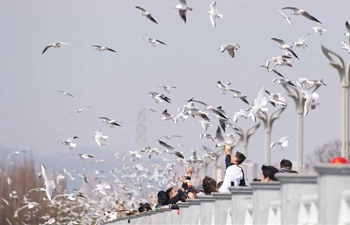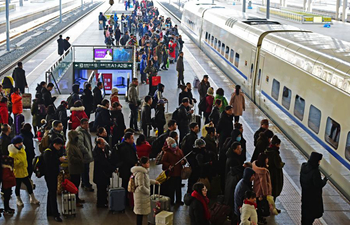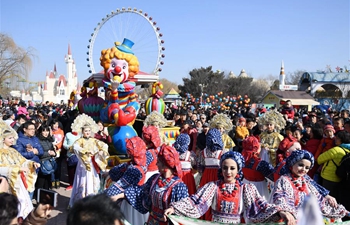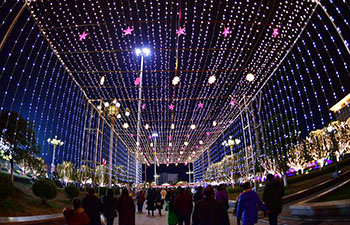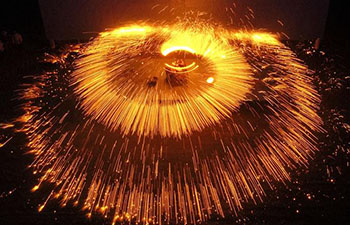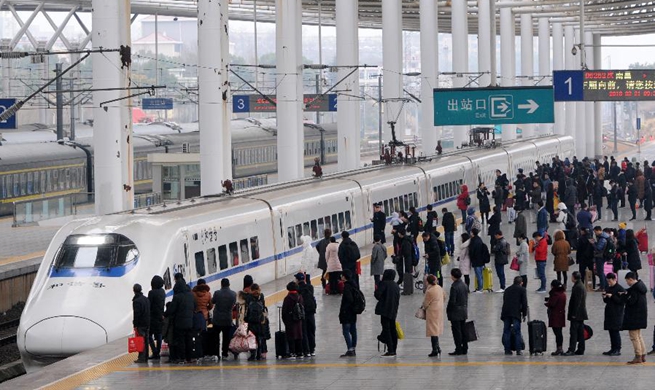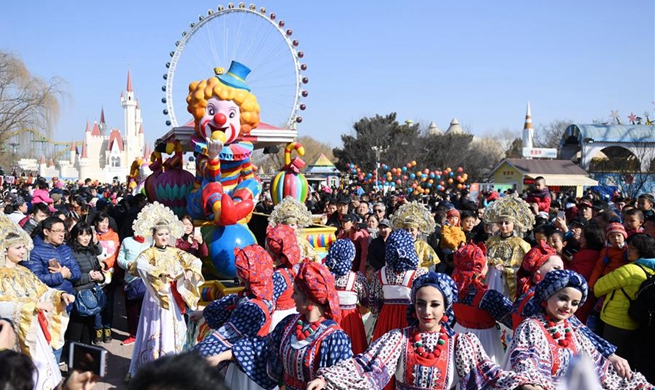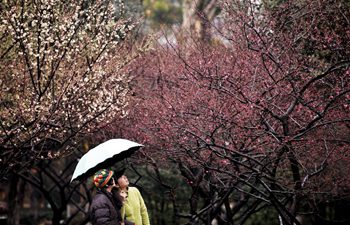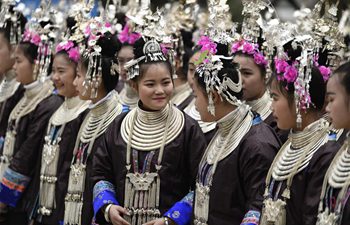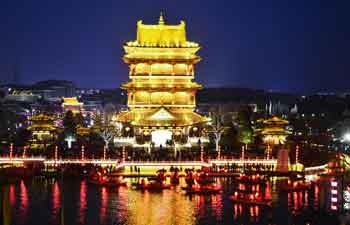BANGKOK, Feb. 21 (Xinhua) -- With the arrival of the Chinese New Year, many Chinese people have returned to hometown to reunite with relatives, but Xu Genluo, chairman of Thai-Chinese Rayong Industrial Realty Development Co., is choosing to stay here in Thailand.
It has been 18 years since Xu came to Thailand and this is just another year for him to celebrate the Chinese New Year here, and many working in his Thai-Chinese Rayong Industrial Zone also stay put.
"We organized a special commission to hold a Spring Festival gala here in the industrial zone," Xu said, as many people back in China are accustomed to watching a televised gala on New Year's Eve and such an event has become an important bond that links all Chinese and even Thai staff working in the industrial zone.
In the past years, the industrial zone has witnessed the success of dozens of Chinese companies, some of which have become pioneers and leading companies in the region.
In 2015, Chinese rubber giant ZC Rubber announced that its factory had been built in the industrial zone, the first factory outside of China. Once it had become operational, the company kept expanding over the years.
Trina Solar Limited, a company involved in photovoltaic ("PV") modules, solutions, and services, announced the official launch of operations at its new manufacturing facility in the industrial zone in 2016, which contributes to the development of energy recycling in the kingdom.
"The industrial zone gives Chinese enterprises a great chance to work together in Thailand as a family," said Chen Hua, the general manager of ZC Rubber (Thailand). "We help each other from time to time."
Now, the industrial zone, based on the number and quality of companies inside and the fulfillment of different industry chains, has become the number one investment platform in Thailand for Chinese enterprises.
In this big family, some employees, both Thais and Chinese, even found love here as well.
Back in 2000, when his company assigned Xu here, "there were no factories, no equipment, nothing," he said.
He, along with his colleagues, worked hard to build an electricity meter factory using 20,000 U.S. dollars of investment money before devoting himself to building the Thai-Chinese Rayong Industrial Zone in 2006.
Twelve years have passed and Xu has been interviewed so many times by media as his industrial zone is seen as a successful example of Thailand-China cooperation with the Belt and Road Initiative being a catalyst.
He always said they were just doing their best to provide a good service to the companies inside and he also emphasized the need to hold events to unite people here.
He always says to call him, "Genluo," as gen means root. Luo can also be seen as an abbreviation of Siam's Chinese corresponding word, Xianluo, and thus Genluo can be understood as a man rooted in the land of Siam, or Thailand.
Nowadays, Xu keeps posting his experience of running an industrial zone on his social media account, in a bid to share this experience with others to come.
And he believes, with the implementation of the Belt and Road Initiative and Thailand's development plan, his industrial zone will welcome more and more Chinese companies that will contribute to the development of the Southeast Asian country.
As for this new year period, "Thai-Chinese Rayong Industrial Zone will not stop working during the New Year period, and we welcome investors to come and visit us, as ever, a Chinese employee said.




